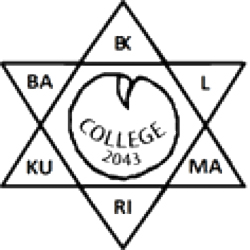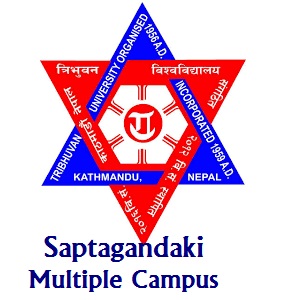Overview
Overviews of BSc Microbiology at Birendra Multiple Campus, Bharatpur, Chitwan, Nepal (affiliated with TU)
BSc Microbiology is a three-year undergraduate program that studies microorganisms, including bacteria, viruses, fungi, and parasites. The program covers various topics related to microbiology, such as microbial genetics, immunology, medical microbiology, food microbiology, and environmental microbiology.
Course Outlines:
The BSc Microbiology program covers some of the main subjects, including Cell Biology, Microbial Diversity, Molecular Biology, Microbial Physiology, Immunology, Medical Microbiology, Microbial Genetics, Food Microbiology, Environmental Microbiology, and Biostatistics.
Duration:
The BSc Microbiology program is three years, divided into six semesters.
Objectives:
The BSc Microbiology program aims to provide students with a thorough understanding of microorganisms and their role in different fields such as medicine, agriculture, and industry. The program aims to develop students' skills in working with microorganisms, including isolation, identification, and characterization, and to use their knowledge to contribute to research and development in the field of microbiology.
Eligibility:
Students who have completed their 10+2 in the science stream with biology as one of the major subjects are eligible for admission to the BSc Microbiology program.
Learning Outcomes:
Students will have a strong foundation in microbiology and related fields after completing the BSc Microbiology program. They will have the skills to isolate, identify, and characterize microorganisms and analyze their role in different environments. Graduates will also be able to conduct research, work in laboratories, and contribute to the development of new technologies and products.
Scope:
Microbiologists are highly sought after in various fields, including pharmaceuticals, food and beverage industries, agriculture, and environmental science. They can also work in research and development, quality control, and laboratory technicians.
Career Prospects:
Graduates of the BSc Microbiology program can find employment opportunities in various fields such as pharmaceuticals, food and beverage industries, agriculture, environmental science, and research and development. Some job titles for microbiologists include Microbiologist, Laboratory Technician, Research Associate, Quality Control Analyst, and Medical Technologist.
Career Options:
Microbiologists have various career options in multiple fields. They can work in research and development, quality control, laboratory testing, and medical technology. They can also pursue higher studies, such as an MSc and PhD, in microbiology or related fields.
Why Choose this Course:
BSc Microbiology is an exciting field of study that provides students with an in-depth understanding of microorganisms and their role in different environments. Students interested in pursuing a career in research and development, laboratory testing, or quality control in industries such as pharmaceuticals, food, beverage, or environmental science will find this helpful program.
Scholarship:
Birendra Multiple Campus offers various scholarship programs to students based on their academic merit and financial need. Students can inquire about scholarship programs during the admission process.
Contact Birendra Multiple Campus's administrative office for detailed information on the BSc Microbiology course, including fees, scholarships, facilities, counseling, eligibility criteria, etc.














